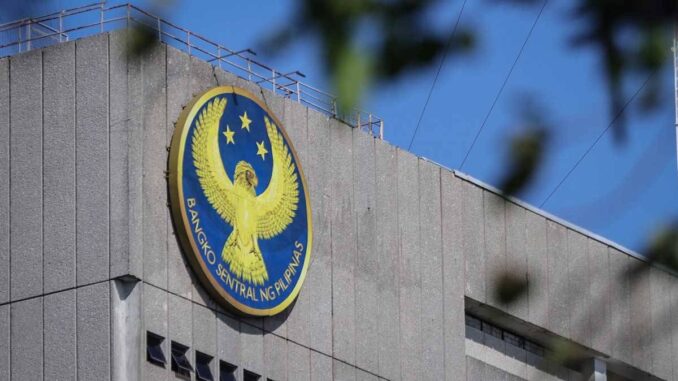
TECH firms Google and Apple are considering bringing their mobile payment systems to the Philippines, a Bangko Sentral ng Pilipinas (BSP) official said.
Initial talks regarding Google Wallet and Apple Pay have been held, BSP Deputy Governor Mamerto Tangonan told reporters late on Monday.
“They were exploring and we had a discussion on their activities,” he said, adding that as operators of payment systems, both firms will have to register with regulators.
Bangko Sentral ng Pilipinas (BSP)
Formal applications have yet to be made, but Tangonan said the registration process could be completed in a month once all requirements were met.
“Once they register, they can render the service,” he added.
For the services to work in the Philippines, Tangonan said that both Google and Apple’s payment systems would need to integrate with users’ bank or stored value accounts.
“It depends on what the customer links, whether it’s a deposit account, credit card or stored value account,” he said.
Tangonan said the entry of the two global players could significantly boost the digital payment landscape in the Philippines and would be aligned with the central bank’s goal of increasing cashless transactions.
Earlier this year, the BSP said that the share of monthly digital payments to total transactions had risen to 55.3 percent in 2023 from 40.1 percent a year earlier, surpassing the 50-percent target under the 2018-2023 Digital Payments Transformation road map.
Merchant payments accounted for 64.9 percent of monthly digital payments volume, the central bank said, followed by person-to-person transfers at 19.3 percent and business-to-business supplier payments at 6.1 percent.
In a related development, the BSP is also open to increasing the number of available digital banking licenses if there is enough demand and if applicants can meet all requirements.
“Let’s say we see that it will exceed four … then we go back to the Monetary Board,” BSP Deputy Governor Chuchi Fonacier told reporters also on Monday.
The central bank in August lifted a moratorium on new applications and said that four slots would be made available.
Rules governing the establishment of digital banks were released in 2020 and six licenses were subsequently issued. The BSP stopped accepting applications less than a year later, saying it wanted to monitor the impact of digital banks on the financial sector.
The four additional licensees will either be new or converting banks, officials have said, with some banks already functioning like digital banks despite holding rural or thrift bank licenses.
The official application process will begin on Jan. 1, 2025, but Fonacier said the BSP had already started engaging with prospective applicants.
At least one European digital bank with an established track record has expressed interest in applying, she added, declining to be more specific.
“You’ll soon find out. They have a good track record and are truly a digital bank,” Fonacier said.
Refinements to existing rules as suggested by the Monetary Board could be issued before the year ends, she also said.
The six digital banks currently operating in the Philippines are UNO Digital Bank, Tonik Digital Bank, UnionDigital Bank, Overseas Filipino Bank (OFBank), Maya Bank and GoTyme Bank.
UNO and Tonik are owned by Singapore-based firms, while OFBank is managed by the state-owned Land Bank of the Philippines. UnionDigital, Maya and GoTyme are owned by Union Bank of the Philippines, the PLDT Group and the Gokongwei Group, respectively.


Be the first to comment